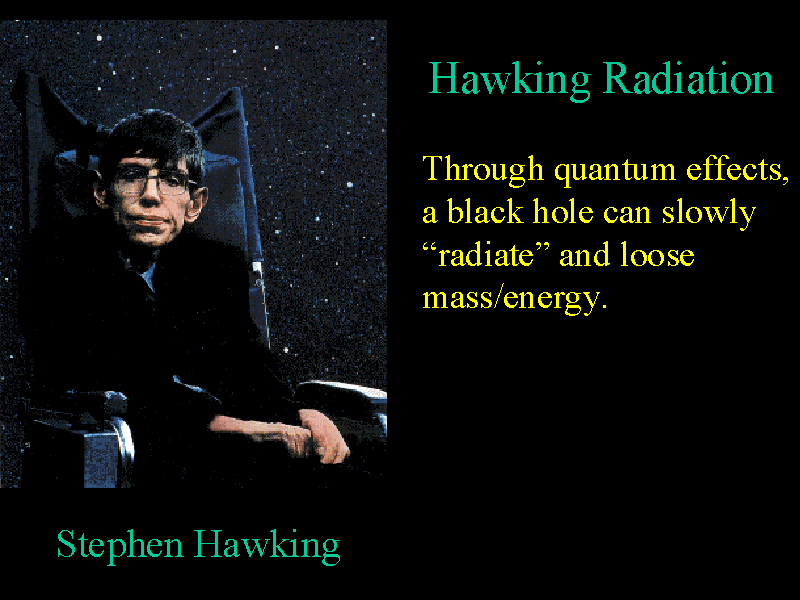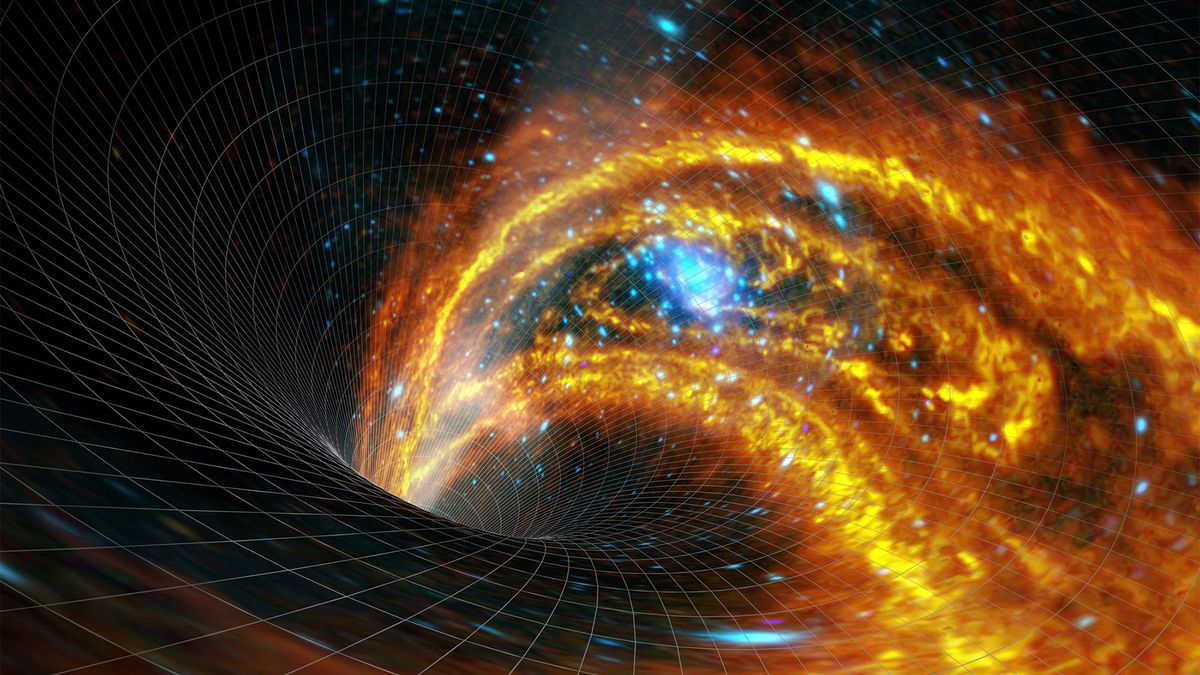

"It's not possible to have both of those things, to have no drama at the apparent horizon and to have the information come out," Bousso told. However, this idea doesn't seem to address the firewall paradox at all, said Raphael Bousso, a theoretical physicist at the University of California, Berkeley. This theory suggests, then, that information can radiate from the black hole.


These apparent horizons shift with the behavior of quantum particles within the black hole. "There are, however, apparent horizons, which persist for a period of time." "The absence of event horizons means that there are no black holes - in the sense of regimes from which light can't escape to infinity," Hawking wrote. Hawking's two-page study attempts to resolve the issue by doing away with event horizons and replacing them with the idea of "apparent horizons." Information radiating out of a black hole is not compatible with general relativity, and destroying information isn't possible within the confines of quantum theory. However, no one is quite sure how information could escape a black hole. In 2004, Hawking had a change of heart and admitted he was wrong about information loss. This violates a basic piece of quantum theory, the idea that information cannot be destroyed. However, he contended that the radiation would be so scrambled that scientists could never work backwards to understand what fell into the black hole in the first place. In 1974, Stephen Hawking found that matter and energy can escape a black hole through what is now known as Hawking radiation. In the thought experiment, quantum theory suggests that an astronaut would not find a "no drama" area at the event horizon, but instead would encounter a " firewall" just inside the black hole that would destroy the unlucky traveler. On the other side of the paradox lies quantum mechanics, the physics theory that explains the behavior of small particles. The black hole would then pull the astronaut apart before it crushed the space explorer into its dense core. The astronaut wouldn't realize he or she had drifted into the black hole at all. If an astronaut fell into a black hole, according to Einstein's theory, he or she would simply float past a point known as the "event horizon" with "no drama." The event horizon refers to the point of no return at which not even light can escape from the black hole. The paradox, developed by Polchinski and colleagues about two years ago, is based upon a thought experiment about would happen to a person if he or she fell into a black hole. Current theories about black holes hinge upon what's known as the "firewall paradox." This paradox pits Einstein's theory of general relativity against quantum theory in the context of a black hole.


 0 kommentar(er)
0 kommentar(er)
